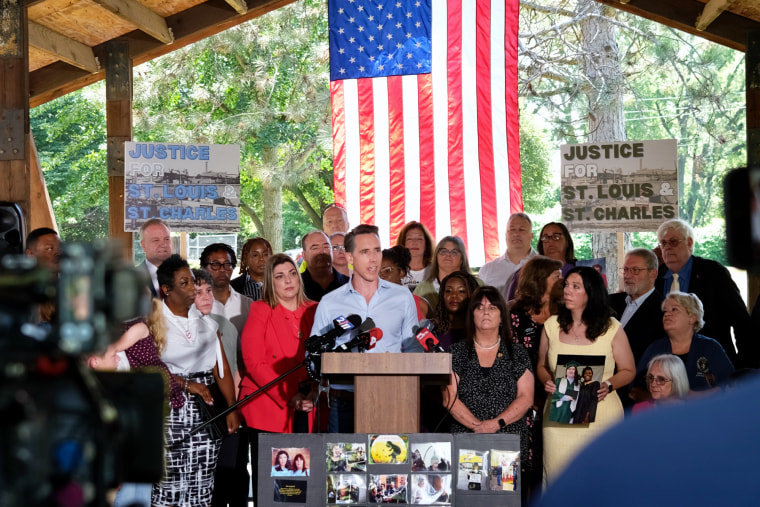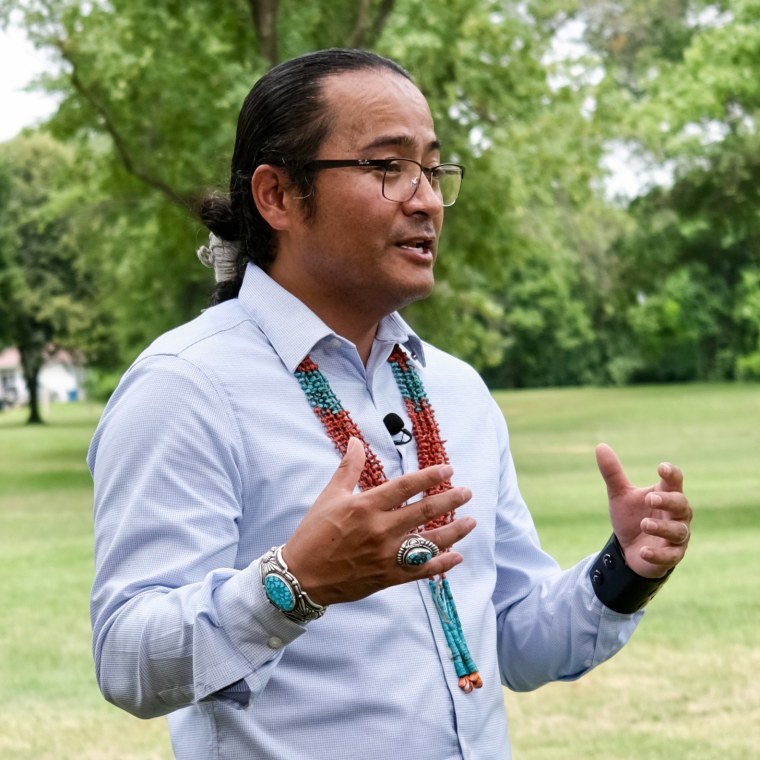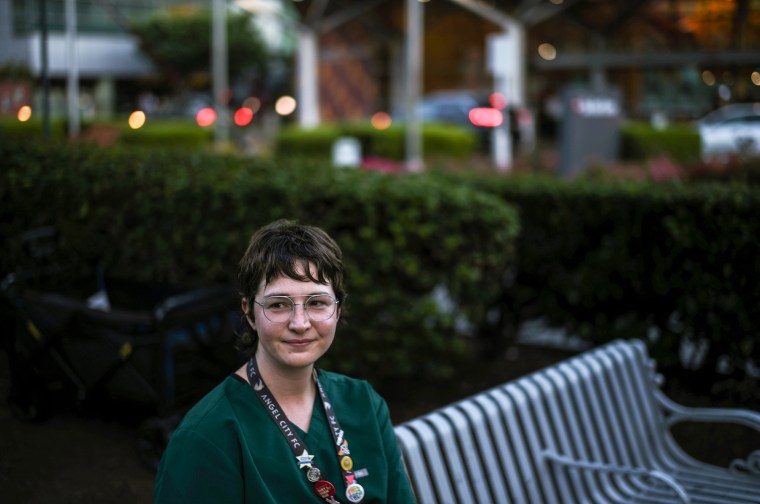HAZELWOOD, Mo. — Four days after President Donald Trump signed his “big, beautiful bill” into law, one of the Republicans who voted for it wasn’t interested in touting the measure’s high-profile tax, immigration or health care provisions.
Instead, Sen. Josh Hawley, R-Mo., held an event here Tuesday centered on a less-noticed part of the nearly 1,000-page bill: an expanded fund for victims of nuclear waste, a bipartisan issue he worked for years to get across the finish line.
And when asked about the steep Medicaid cuts in the bill, Hawley continued to criticize them. Hawley said his “goal” is to ensure the provider tax changes, which will limit state reimbursement for Medicaid, don’t go into effect in Missouri in 2030 — even as he helped to pass a piece of legislation that will do just that.
It illustrates the challenges Republicans face as they turn their attention to selling to the public the massive bill they’ve been working on for months, ahead of next year’s midterm elections.
“I think that if Republicans don’t come out strong and say we’re going to protect rural hospitals, then, yeah, I think voters aren’t going to like that,” Hawley told NBC News in an interview at St. Cin Park. “The truth of the matter is, we shouldn’t be cutting rural hospitals. I’m completely opposed to cutting rural hospitals period. I haven’t changed my view on that one iota.”
Hawley suggested he would work with Democrats to cut prescription drug pricing, a priority Trump has said he wants Congress to focus on, to pay for the tax cuts made permanent by the new law.

Ultimately, Hawley — who is seen as a potential future presidential candidate — chose to stay in Trump’s good graces and vote for the bill despite his reservations, while managing to score victories for his constituents.
“Gotta take the wins that you can,” Hawley told NBC News when asked about voting for a bill he admitted he didn’t like.
Defending his vote for the package that the nonpartisan Congressional Budget Office projected will cause nearly 12 million people to lose their health care coverage by 2034, Hawley said the Radiation Exposure Compensation Act (RECA), as well as the rural hospital fund included in the bill at the eleventh hour to appease GOP holdouts in the Senate, would expand health care in Missouri.
But for the hospitals and social safety net administrators in Missouri, the law’s changes — even if not fully implemented until later — bring uncertainty to a community dependent on funding from expanded Medicaid access. The Missouri Hospital Association estimates the state will lose hundreds of millions of dollars in funding from the provider tax changes alone.
Federally qualified health centers, which rely on government funding to function and provide health care to underserved populations, are already facing shortfalls and budget cuts. An administrator at such a health center in the rural Missouri Highlands told NBC News last month that the impacts from Trump’s megabill will lead to death in her community.
The issue is already impacting states across the country. Hundreds of rural hospitals could close and many more will lose billions of dollars in funding over the next decade, according to an analysis from the Kaiser Family Foundation.
From a political standpoint, Republicans will need to defend policy choices that Democrats are already attacking as they seek to hold onto their congressional majorities in 2026.
Hawley joined many GOP lawmakers in gaining private assurances from leadership early on and securing priorities in the sprawling legislation.
He worked with Senate Majority Leader John Thune, R-S.D., “early in the year” to attach RECA to the package. RECA, a federal law that provided financial compensation to individuals who developed certain diseases as a result of exposure to radiation, expired last year.
“For me, it was key to my vote,” Hawley said. The expanded fund will accept new claims from “downwinders” and uranium workers until Dec. 31, 2027 and covers more cities and states, including zip codes in Missouri.

Joining Hawley at the news conference Tuesday were advocates for victims of nuclear radiation from all over the country dating back to the Manhattan Project, including Sherrie Hanna from Prescott, Arizona. Hanna lost her father and her husband to cancers that were later linked to nuclear waste in the area.
“They both succumbed to painful deaths,” Hanna said. “I know how important the RECA compensation is.”
Hanna said she was “devastated” when RECA expired in June 2024. “I thought we would never get the program back. But we kept fighting.”
The event was also bipartisan in nature: Hawley embraced former Democratic Rep. Cori Bush — who was a member of the progressive “squad” in Congress — and showered her with praise.
“So Cori, thank you. We would not be here without you and your work,” Hawley said.
Also joining Hawley was Rep. Wesley Bell, D-Mo., who defended his support for the provision even as he and every other Democratic member of Congress voted against the Big Beautiful Bill.
“There are some concerns and issues that many of us have with this budgetary bill. But at the same time, the folks who have been waiting a long time for compensation, to be acknowledged for the pain and suffering, that’s one thing that I can rejoice in,” Bell said.

Some of the advocates who fought for RECA’s passage acknowledged the bill’s double-edged sword, like Navajo Nation President Buu Nygren, who traveled from Arizona to praise Hawley’s efforts in securing compensation for indigenous communities impacted by the government’s nuclear programs.
“It’s difficult to celebrate,” Nygren told NBC News, acknowledging the bill’s negative consequences on renewable energy and health care coverage for the Navajo nation.























